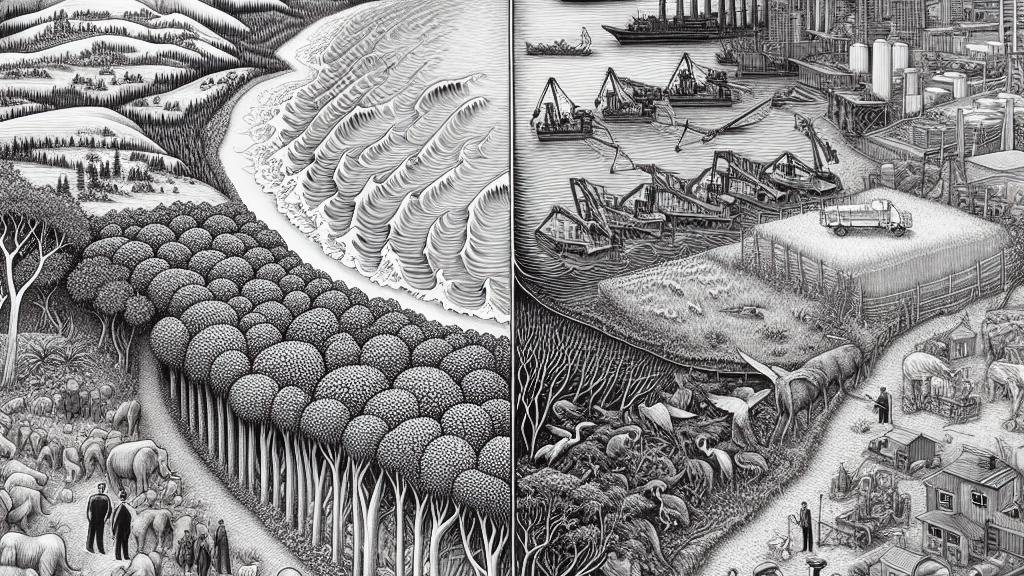New Zealand's Green Dream or Economic Nightmare? The Dilemma Behind Policy Changes!
Overview
- The New Zealand government rolls back environmental protections to stimulate economic recovery.
- The reinstatement of oil and gas exploration raises concerns among environmentalists.
- Debates highlight the struggle between fostering economic growth and maintaining sustainability.

Economic Context and Policy Changes
New Zealand is facing a critical economic situation, with GDP growth stagnating at only 0.3% for the year leading up to March 2024. This is the slowest growth recorded since the global pandemic, prompting Prime Minister Christopher Luxon and his centre-right coalition government to take drastic measures. In a bid to invigorate the economy, the government has decided to reverse several key environmental reforms, including the ban on oil and gas exploration. These changes aim to support major exporting sectors, particularly agriculture, which are deemed essential for economic stability. By delaying the implementation of agricultural emissions pricing and advocating for increased mining, the government hopes to enhance export revenues and restore fiscal health.
Reactions from Stakeholders and Environmental Concerns
The rolling back of green policies has elicited a mixed response from various stakeholders. Farmers and agricultural organizations largely support these changes, as they argue that previous regulations would have raised production costs significantly, potentially leading to reduced competitiveness. However, environmental groups have strongly criticized the government for prioritizing immediate economic gains over long-term ecological stability. Leaders from influential organizations, such as Forest and Bird, caution that these shortsighted policies threaten New Zealand's unique biodiversity and natural heritage. Furthermore, major companies like Air New Zealand dropping their emissions targets underscore a worrying trend toward complacency regarding environmental responsibility.
The Ongoing Dilemma of Growth vs. Sustainability
As the government insists on a commitment to climate targets, it proposes a least-cost approach to achieve these goals. Climate Minister Simon Watts expresses the belief that economic growth and sustainability can coexist if managed properly. Yet, there are increasing doubts about the feasibility of this strategy. Experts warn that if New Zealand fails to meet its emission targets, it risks not only significant reputational harm but also potential economic consequences linked to global markets increasingly valuing sustainability. This ongoing debate about the intersection of economic policy and environmental responsibility presents a complex challenge for the nation. As New Zealand navigates these uncharted waters, the decision-making process will undoubtedly influence its identity on the international stage, shaping future policies and their impact on both people and the planet.

Loading...